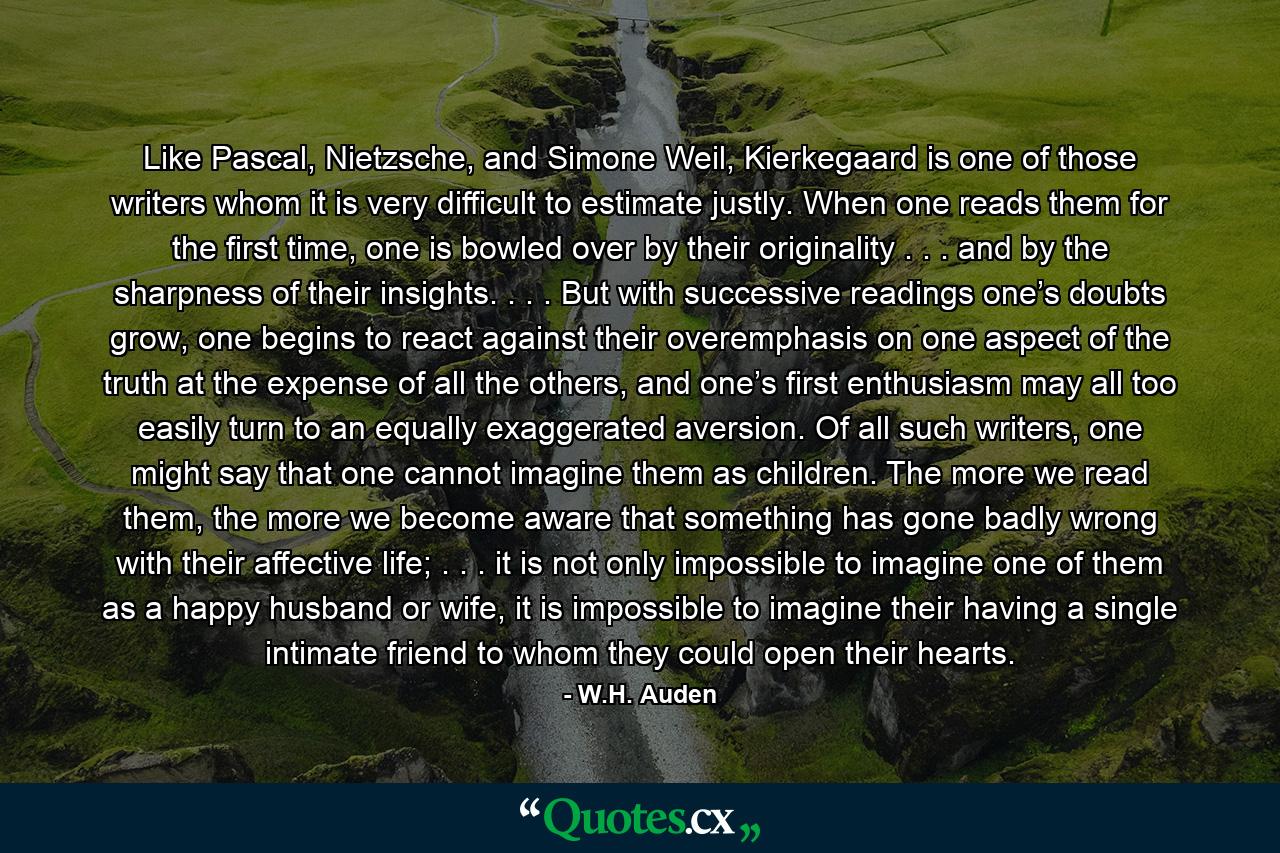Like Pascal, Nietzsche, and Simone Weil, Kierkegaard is one of those writers whom it is very difficult to estimate justly. When one reads them for the first time, one is bowled over by their originality . . . and by the sharpness of their insights. . . . But with successive readings one’s doubts grow, one begins to react against their overemphasis on one aspect of the truth at the expense of all the others, and one’s first enthusiasm may all too easily turn to an equally exaggerated aversion. Of all such writers, one might say that one cannot imagine them as children. The more we read them, the more we become aware that something has gone badly wrong with their affective life; . . . it is not only impossible to imagine one of them as a happy husband or wife, it is impossible to imagine their having a single intimate friend to whom they could open their hearts.
